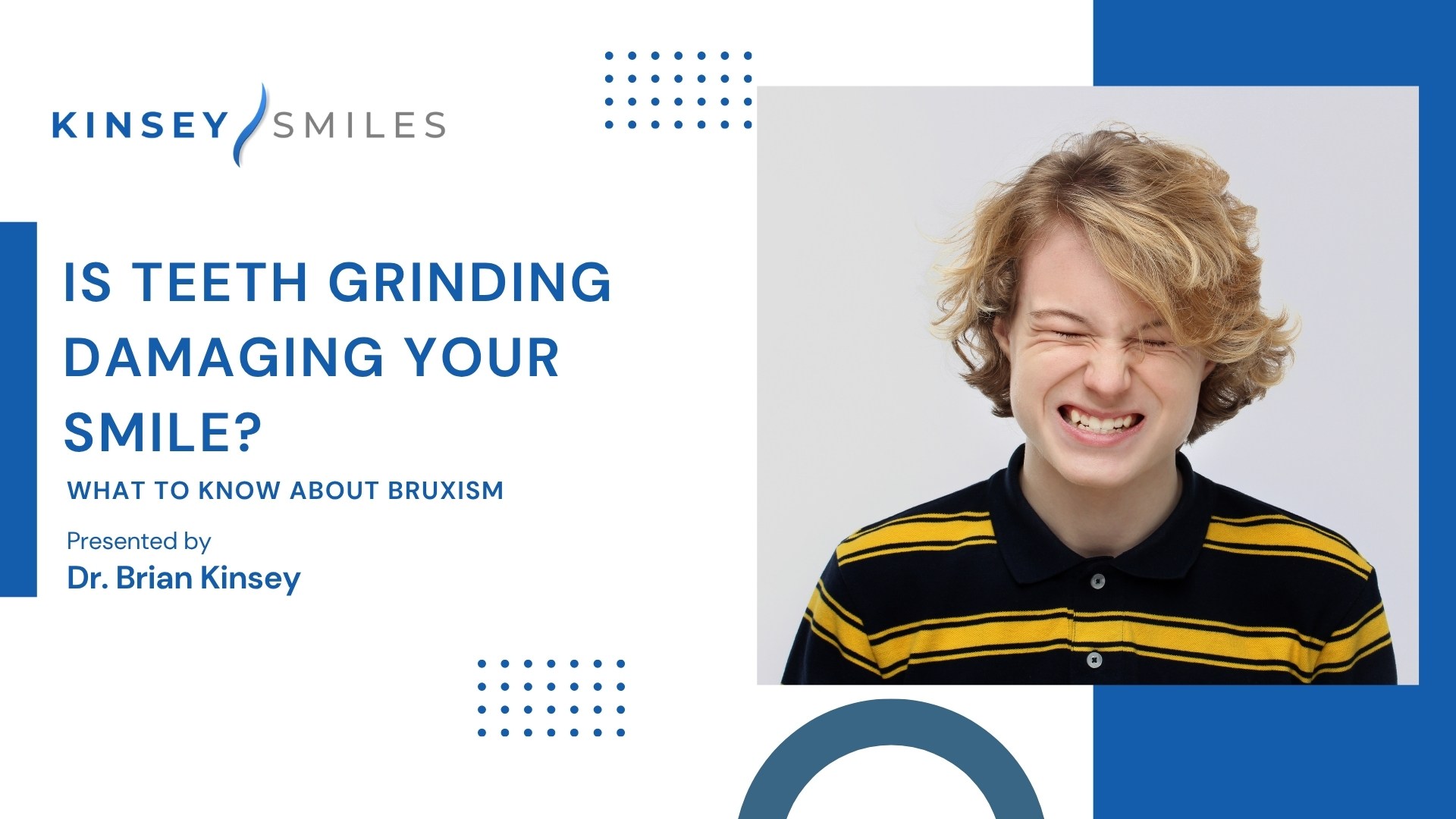Do you wake up some mornings with your jaw feeling sore or do you have a headache? Or are your teeth feeling sensitive even when you brush and floss daily? If so, you may be grinding your teeth without even knowing it. This is referred to as bruxism. In the long term, bruxism can slowly deteriorate your teeth, gums and jaw. The sad part is that the majority of people do not realize that they have a bruxism problem until their dentist tells them.
📚 Table of Contents
What Is Teeth Grinding (Bruxism)?
Teeth grinding, also called bruxism, happens when you grind or clench your teeth. It can happen while you’re awake, but most people do it while they’re sleeping and don’t even know it. Over time, this can hurt your teeth, jaw, and smile.
Bruxism is more common than you might think. Both children and adults can have it. Some people grind their teeth because they feel stressed or anxious. Others may do it because of sleep problems or bite issues.
Why Is Teeth Grinding a Problem?
Grinding your teeth once or twice isn’t a big deal. But if you do it often, it can damage your smile. Your teeth may become flat, loose, or even cracked. This can also lead to pain in your jaw or face. In some cases, it can even make it hard to chew food or open your mouth properly.
Over time, bruxism can also harm your tooth enamel. That’s the hard outer layer that protects your teeth. When the enamel wears down, your teeth can become sensitive and more likely to get cavities. A dentist Dacula can check for signs of enamel loss and help prevent further damage.
What Are the Common Signs of Teeth Grinding?
Many people might not realize they grind their teeth until a dentist detects evidence of damage. Here are some common indicators to check for:
- Worn down or flattened teeth
- Cracked or chipped teeth
- Tooth pain or sensitivity
- Jaw soreness, especially in the morning
- Headaches when you wake up
- Tight or tired jaw muscles
- Clicking or popping sounds in your jaw
- Trouble sleeping
If you notice any of these indicators, you should see your dentist. They can examine your teeth and tell you if you have bruxism.
What Causes Bruxism?
People grind their teeth for a variety of reasons. Numerous factors can contribute to it, including:
- Stress or anxiety
- Sleep disorders like sleep apnea
- A bad bite (when your teeth don’t line up well)
- Missing or crooked teeth
- Certain medicines
- Alcohol or caffeine use
- Smoking or using other tobacco products
Can Teeth Grinding Go Away on Its Own?
Sometimes, especially in children, teeth grinding can stop without treatment. But in many adults, it continues and may even get worse. If left untreated, bruxism can lead to serious dental problems. That’s why it’s important to get help early.
How to Treat Bruxism
Bruxism can be treated in a variety of ways. Depending on the severity of your grinding and the underlying cause, your dentist will choose the most appropriate course of action.
Here are some common treatments:
- Custom Night Guard
This is one of the most common ways to protect your teeth. A night guard is a special mouthpiece made by your dentist. You wear it while sleeping. It keeps your teeth from rubbing together. It also helps relax your jaw muscles.
- Dental Correction
If your teeth do not align properly, your dentist may recommend that you repair your bite. Braces, crowns, and tooth reshaping can all be used to achieve this.
- Stress Management
If stress is causing your grinding, learning how to relax can help. You can try breathing exercises, gentle yoga, or talking to a counselor.
- Medication Review
If a medication you’re taking is causing bruxism, a professional may adjust the dosage or recommend an alternative one.
- Avoid Certain Habits
Cutting back on caffeine and alcohol can help minimize grinding. It’s also a good idea to stop chewing on pens, nails, and gum.
Can My Dentist Help with Bruxism?
Yes! Your dentist is the right person to talk to if you think you’re grinding your teeth. They can look for signs of damage and help find out what’s causing the problem. They may suggest a night guard or other treatments.
Regular dental checkups are very important. Your dentist can catch early signs of bruxism before it causes serious harm.
What Happens If You Don’t Treat Teeth Grinding?
If bruxism is not treated, it can lead to:
- Severe tooth damage
- Jaw pain or joint problems
- Headaches or earaches
- Trouble chewing or speaking
- Expensive dental treatments later on
It’s better to catch the problem early and stop the damage before it gets worse.
Should Children Be Treated for Teeth Grinding?
Yes, but it depends on the child. Many kids grind their teeth and grow out of it. But if the grinding is causing pain, broken teeth, or sleep problems, treatment may be needed. A children’s dentist can check and decide the best plan.
Final Thoughts
Teeth grinding may seem small, but it can damage your smile over time. Pay attention to the signs of teeth grinding, like sore jaws, flat teeth, or morning headaches. Consult your dentist if you suspect bruxism.
Protect Your Smile, Stop Teeth Grinding Today!
Whether you grind your teeth at night or during the day, Kinsey Smiles is here to help. Teeth grinding, also called bruxism, can damage your teeth and cause jaw pain. Our dental team offers custom guards to protect your teeth as well as help you sleep better. Call Kinsey Smiles to book your visit.

